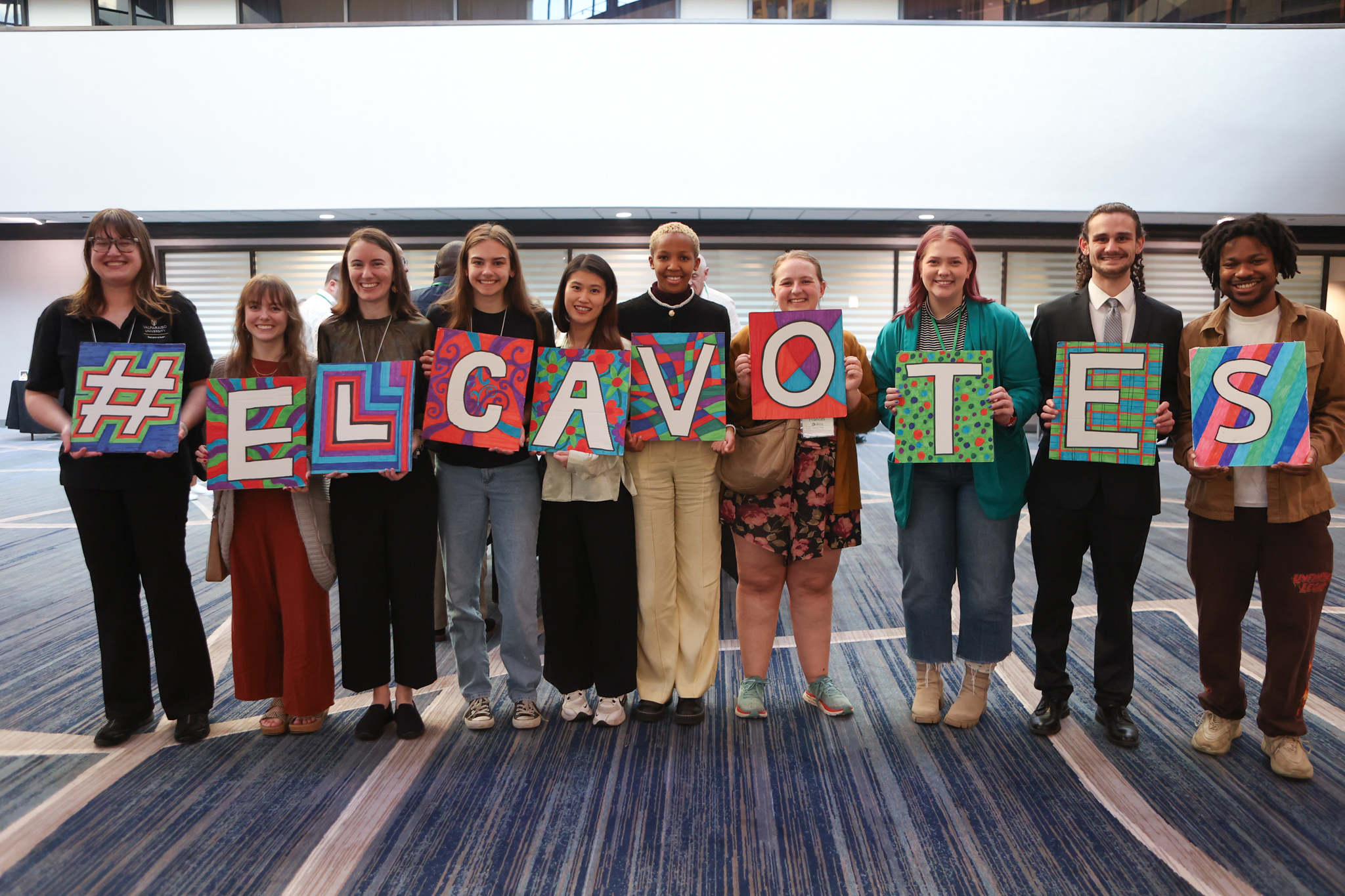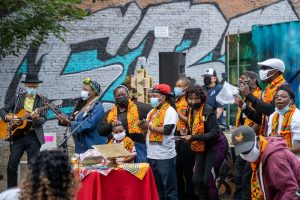The ELCA Building Resilient Communities (BRC) team invites nominations of adult leaders, ages 18-and-older, to participate in the inaugural Building Resilient Leadership (BRL) cohort.
Over twelve months, BRL participants will grow their public leadership skills while they develop a justice-oriented project in their community, build relationships with a peer mentoring group, and participate in community-organizing skills workshops.
BRL seeks to work with leaders who already demonstrate leadership in their communities on an everyday basis and seek to further develop their ability to accompany their community as it continues to flourish.
If there are any adult leaders in your life who you think would be a good fit for this program, please send them the link to this page. If they indicate a desire and capacity to apply, please nominate them using this form.
Nominations will be accepted through June 16th (please note the expanded deadline). Nominees will then be asked to officially apply, with a due date of July 7th for that application.
Who is the Building Resilient Communities team?
BRC is the office of the ELCA that represents the three direct service, intersectional justice ministries of the church: ELCA World Hunger, AMMPARO, and Lutheran Disaster Response. We meet human need and enhance human dignity, work to overturn oppression and injustice, and engage members and constituents collaboratively toward the flourishing of human community.
Program Highlights
- Participants will create a project in, with, and for their community. BRL’s goal is to support leaders whose work throughout the program prioritize the stories of their community, is open to people from any identity or background, and increases their community’s power. The project might be a single event or seek to have longevity beyond the 12-month program. Some potential projects might be (but are not limited to):
- Community-based mutual aid groups
- Local community spaces (physical or virtual)
- Safe spaces for marginalized people in a community (physical or virtual)
- Regular resiliency training for community members
- Local advocacy dedicated to building power for marginalized members of a community
- First steps toward creation of local food-hub
- Most importantly: participants do not need to have a project in mind before they start the BRL program.
- Peer mentoring. In peer mentoring sessions participants will develop their project relationally, alongside other BRL leaders and an assigned mentor. Through reflection and open discussion, colleagues will hold one another accountable for the growth of their project and their leadership skills.
- Participants will attend a monthly workshop series that will inform the growth of their project. Each workshop will feature experts from the ELCA ecosystem, focusing on different aspects of leadership development and community organizing.
BRL leaders benefit from the following:
- Up to $1,000 in seed money to develop a community project.
- Connection to the national, intergenerational network of ELCA justice ministries: ELCA World Hunger, Lutheran Disaster Response, and AMMPARO.
- Tangible, transferrable skills for leadership in career, volunteering, and recreation.
- Deepened relationships with people in their communities.
- New connections with peers passionate about many of the same justice issues as themselves.
- A prestigious addition to their resume.
- The opportunity to shape a growing leadership development program from the ground-up, through participation in this inaugural cohort.
Participants’ Time Commitment:
- Participation at a two-day, in-person orientation at the ELCA World Hunger Leadership Gathering in Columbus, Ohio in September.
- 5 hours/month to attend and prepare for workshops and peer mentoring sessions.
- Any time spent on their community-based justice project. This is up to the participant and depends on the extent of the project. Intensive work on projects will begin around November and continue into the following summer.
- A final celebration and presentation of projects in August.
If you would like to nominate any adults in your life, please do the following:
- First, let them know! When you do be sure to acknowledge and celebrate their leadership. Then, make sure the program is something they can commit to. Their participation in all elements of this program is required. Feel free to send the potential candidate the link to this page. They should also know there is a brief application process for nominees.
- Once you have confirmation that one or more leaders in your life are interested and able to apply, please fill out this form.
- Self-nominations are also welcome.
Questions?
Email Peter McLellan (ELCA Program Director, Hunger Education) at peter.mclellan@elca.org.


